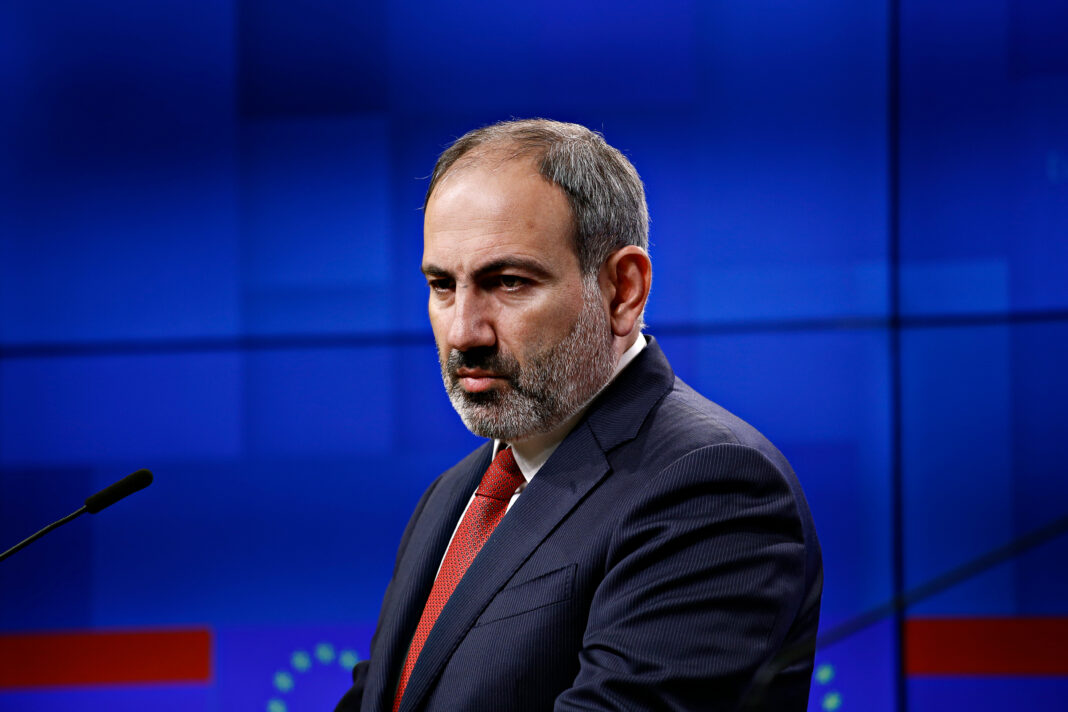by Kateryna Mishchenko
In an interview with France 24, Armenian Prime Minister Nikol Pashinyan stated that the so-called collective security agreement in relation to Yerevan had not been upheld, especially in 2021-2022. At that time, according to the head of the Armenian government, he was offered to sign a joint declaration of the Collective Security Treaty Organization (CSTO) Council, which lacked a political assessment of “Azerbaijan’s aggression” against Armenia’s sovereignty. However, he noted that the question of closing the Russian military base in Armenia is not currently “on the agenda.”
“This could not escape our attention. We have suspended our participation. We will see what happens next,” Pashinyan said. According to Pashinyan, Azerbaijani President Ilham Aliyev “wants not a peaceful agreement based on mutual recognition of territorial integrity, but plans to seize new territories in Armenia”.
Nikol Pashinyan also said that last autumn, Russian representatives called on Armenian citizens to take to the streets and overthrow the government, and that Russian TV channels have been conducting systematic and consistent propaganda against the government and him personally for six years. The Armenian Prime Minister stressed that despite this, Armenian-Russian relations remain within the framework of “institutional traditions.”
Earlier, the Prime Minister of Armenia stated that Yerevan had been forced to reconsider relations with other countries and seek new partners in the security sphere because of Russia’s actions. He emphasized that Moscow had failed to fulfill its alliance commitments to Armenia in the Nagorno-Karabakh conflict and stated that he saw no advantages in having Russian military bases on the country’s territory.
In November 2023, Pashinyan refused to participate in the CSTO summit in Minsk. At the summit held in Yerevan in November 2022, the Prime Minister of Armenia refused to sign draft declarations of the CSTO Council and documents on joint measures to assist Armenia. The decision was explained by the absence of “a clear political assessment of the situation on the Armenian-Azerbaijani border” in the documents. This “could mean the CSTO’s refusal of allied commitments and could be interpreted by Azerbaijan as a green light for aggression,” Pashinyan said.
In January 2023, Armenia refused to conduct CSTO exercises on its territory, considering them “inexpedient.” Prior to this, Yerevan had criticized Moscow over the situation with the Lachin corridor – the only road connecting Nagorno-Karabakh with Armenia.
The conflict between Armenia and Azerbaijan over this region began in 1988. At that time, according to various sources, over 30,000 people were killed. A ceasefire was only established in May 1994. Despite the ceasefire between the parties, it was periodically violated. In September 2023, Azerbaijan announced an “anti-terrorism operation” in Nagorno-Karabakh, resulting in the region returning under its control. As a result, over 50,000 refugees from this region arrived in Armenia.
On January 28, Armenia proposed to Azerbaijan to sign a non-aggression pact if the process of concluding a peace treaty would be lengthy. Yerevan proposes to demarcate the borders according to the latest Soviet maps from 1975, but Baku is against it, explaining that in the 1970s, historical lands of Azerbaijan were transferred to Armenia. Negotiations are ongoing.
On the cover photo, the Prime Minister of Armenia Nikol Pashinyan ©Alexandros Michailidis/Shutterstock.com
























